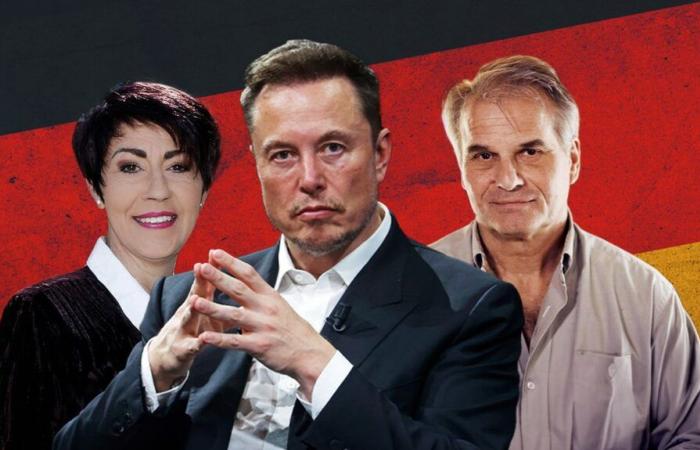Elon Musk has lent his support to the far-right AfD party, sparking reactions in Germany. A German influencer, Naomi Seibt, claimed that Germany could cancel the elections in the event of unfavorable results for the AfD, due to interference on the social network German complosphere and an active activist in the far-right AfD party. Rudy Reichstadt points out that Musk’s use of X as a “political-ideological war machine” is problematic, although he has the right to support whoever he wants.
According to Sébastien Baer, Radio France correspondent in Germany, the Germans he was able to meet were “all, without exception, shocked by these interventions by Elon Musk in the electoral campaign. They were really, even for some, stunned”.
“The Germans are worried that Elon Musk could influence a certain number of the most skeptical voters and encourage them, encourage them to vote for the AfD, for the German extreme right which, let us remember, is still in a very good position.”
Sébastien Baer, Radio France correspondent in Germanyat franceinfo
The AfD and its activists “have been relaying since the beginning, it is part of their ideological corpus, conspiracy theories linked to the great replacement, the climate, covid or the war in Ukraine due to their classic pro-Russian positions in far-right circles”explains Tristan Mendès France.
The Covid-19 pandemic has exacerbated conspiracy theories in Germany. Protests against health restrictions brought together various groups, including AfD MPs. AfD MP Christine Anderson described the pandemic as “giant lie”.
Among the ranks of the demonstrators, movements like Hygiene-Demo or Querdenken appeared. Sébastien Baer remembers that “some demonstrators at the time assimilated themselves to the Jews persecuted during the Nazi era, there was a form of victimization. Some also wore badges in the shape of a Jewish star with the ‘unvaccinated’ inscription.”
A far-right group, the Reichsbürger (“Citizens of the Reich”), represents another worrying facet of conspiracyism. They do not recognize the legitimacy of the German state and believe that Germany is still governed by the Supreme Headquarters Allied Expeditionary Force (SHAEF), dissolved in 1945. Sébastien Baer describes how the Reichsbürger had organized a “coup d’état” and that investigators found a “arsenal of almost 400 firearms”.
Finally, Tristan Mendès France underlines the importance of the QAnon movement in Germany, affirming that it is “probably the most affected country in Europe”.
Despite their minority character, these movements have a significant impact on German society. Tristan Mendès France warns against neglecting conspiracy in Germany, because “it is the most populous country and the largest economy in the EU and it is the country in the European Union with the largest QAnon community”. Rudy Reichstadt note “the similarity of the political issues on both sides of the Rhine, with a very dynamic national populism which feeds on a polymorphous conspiracy.”






